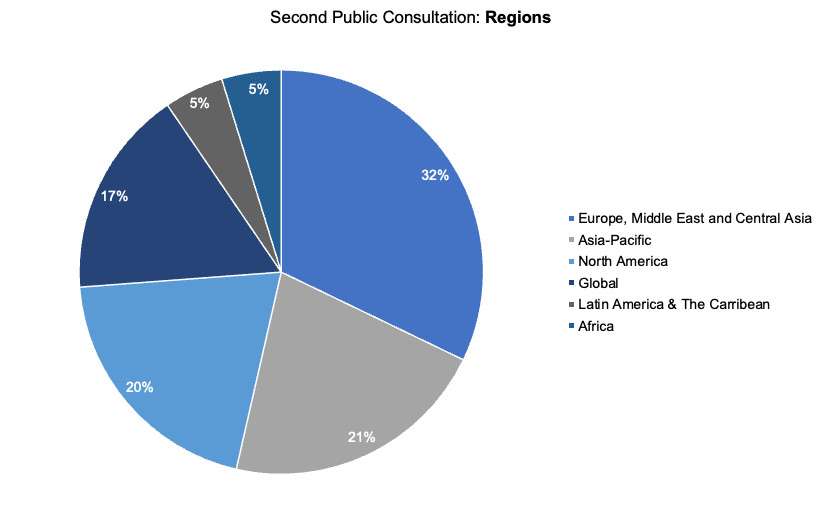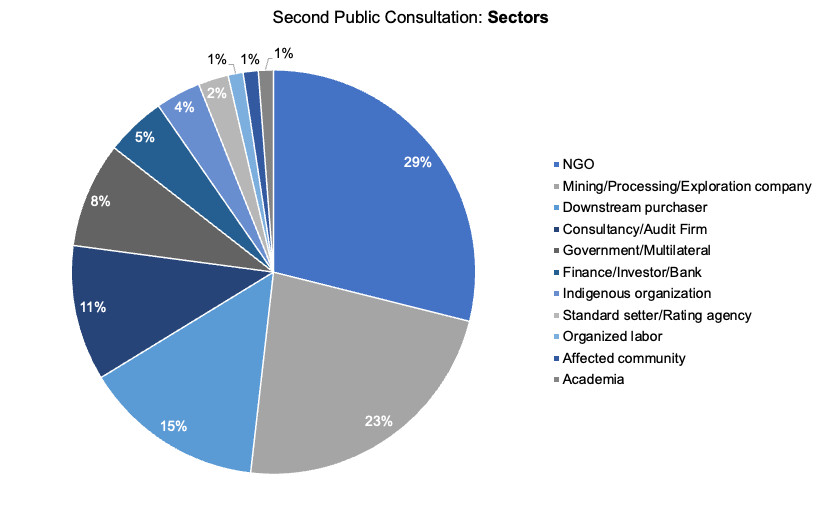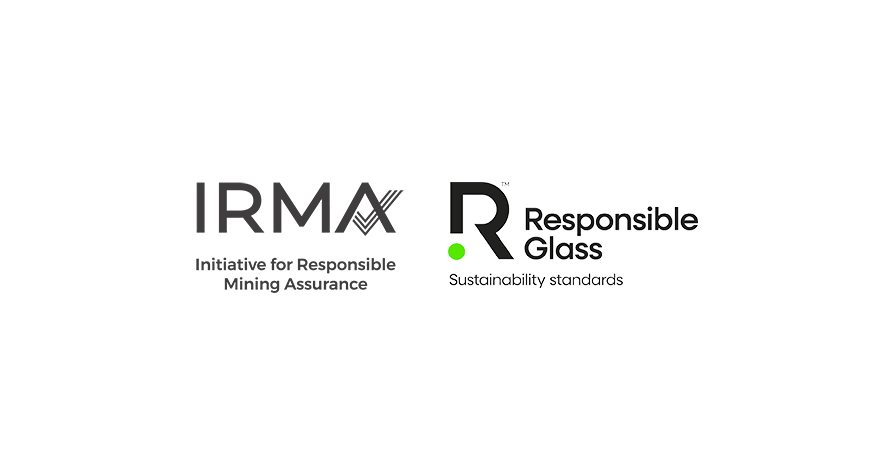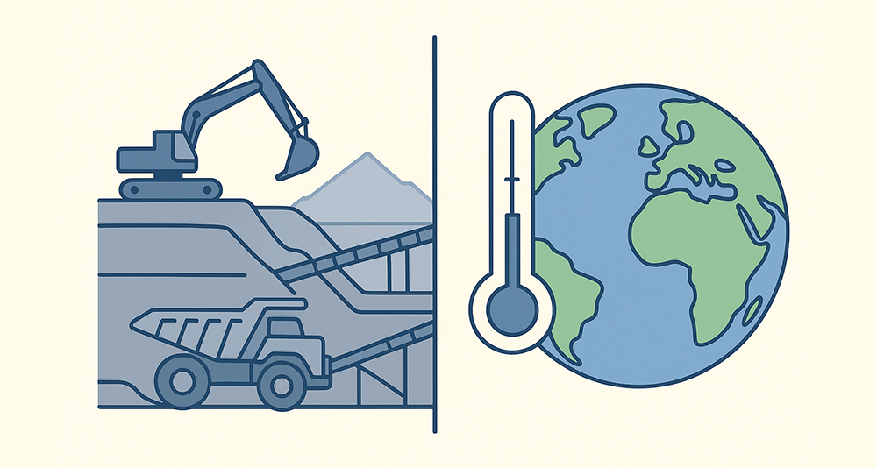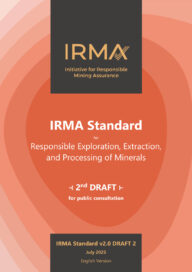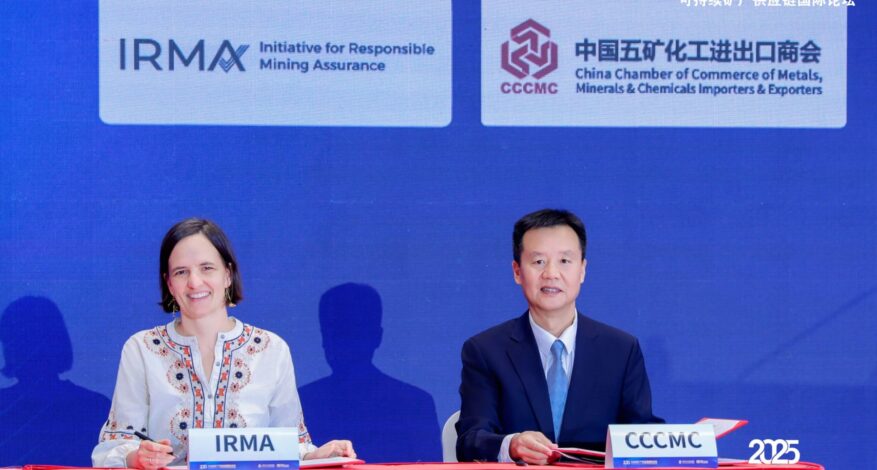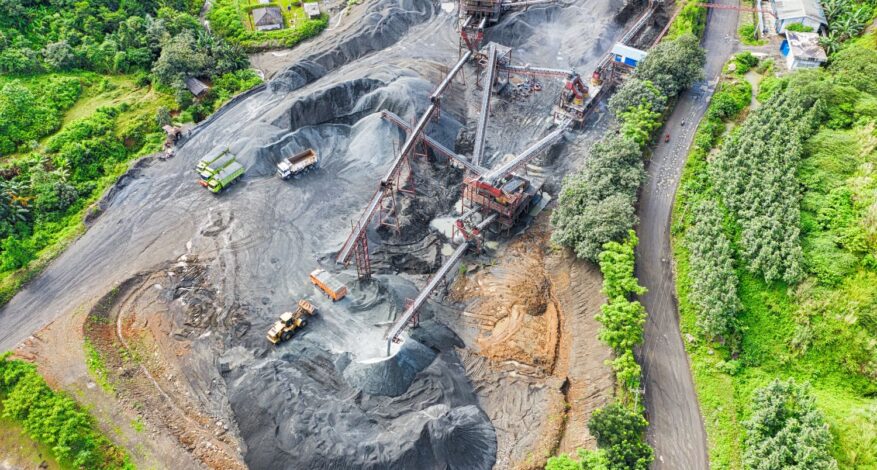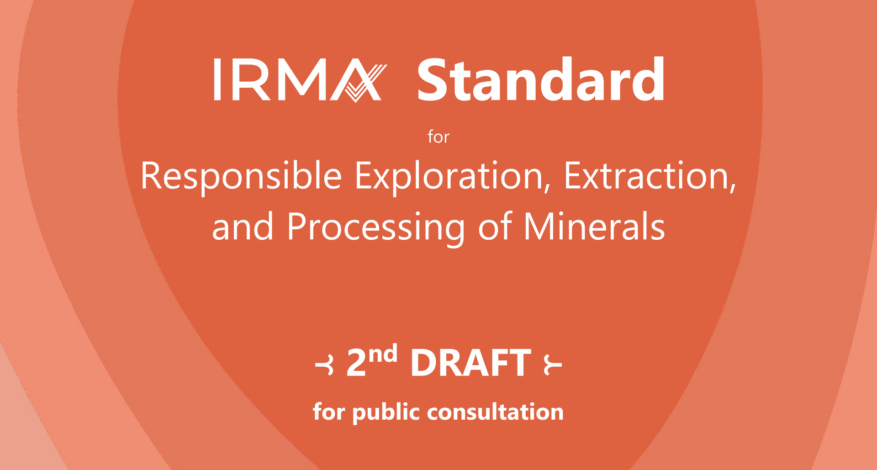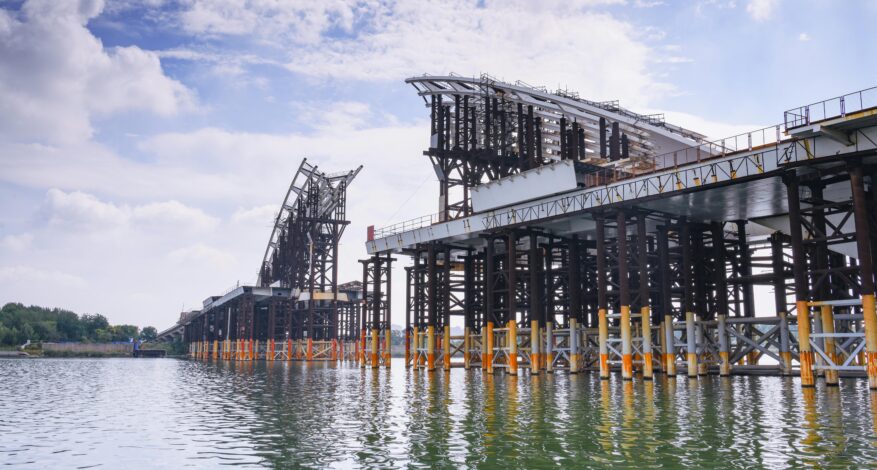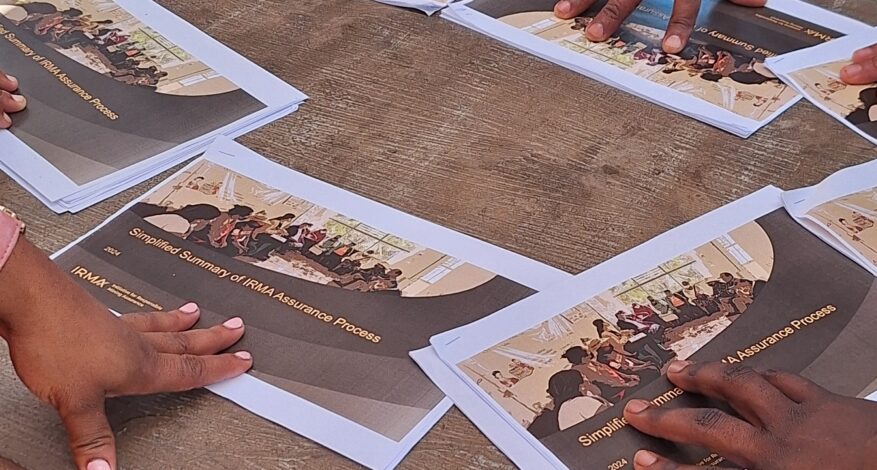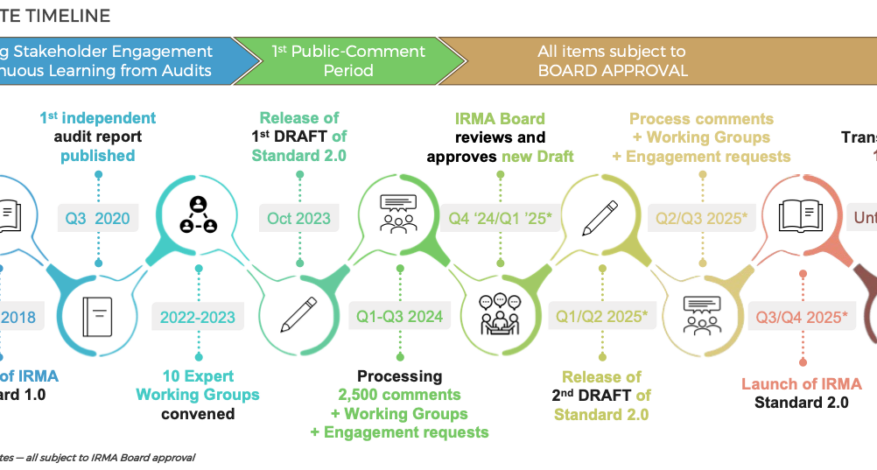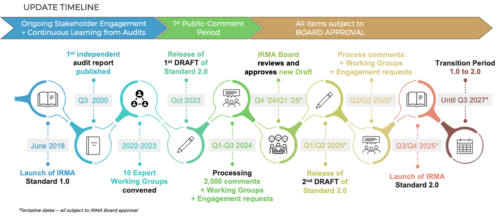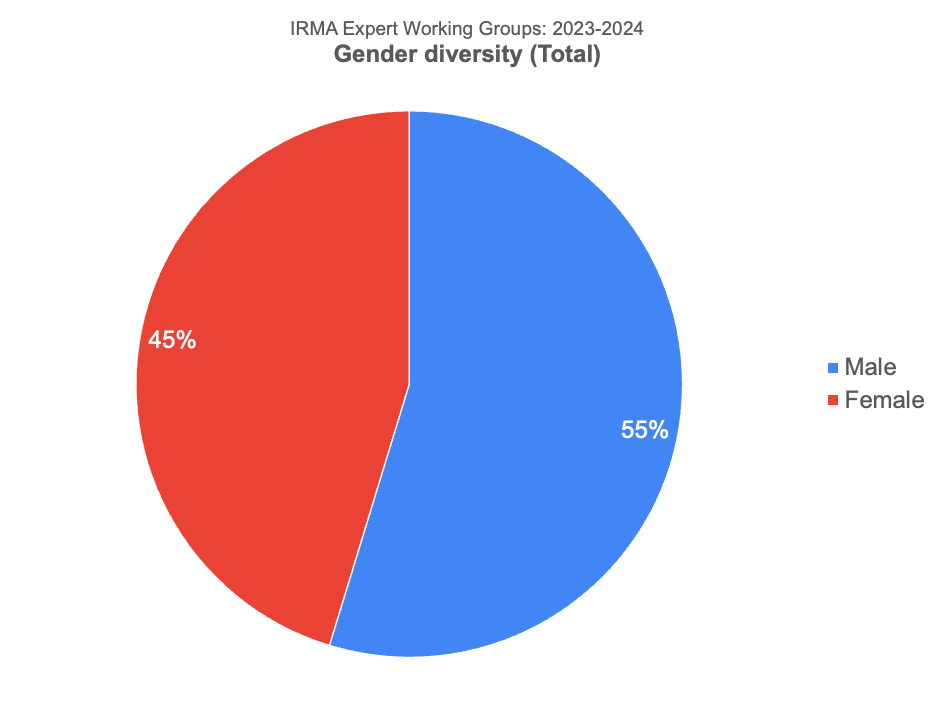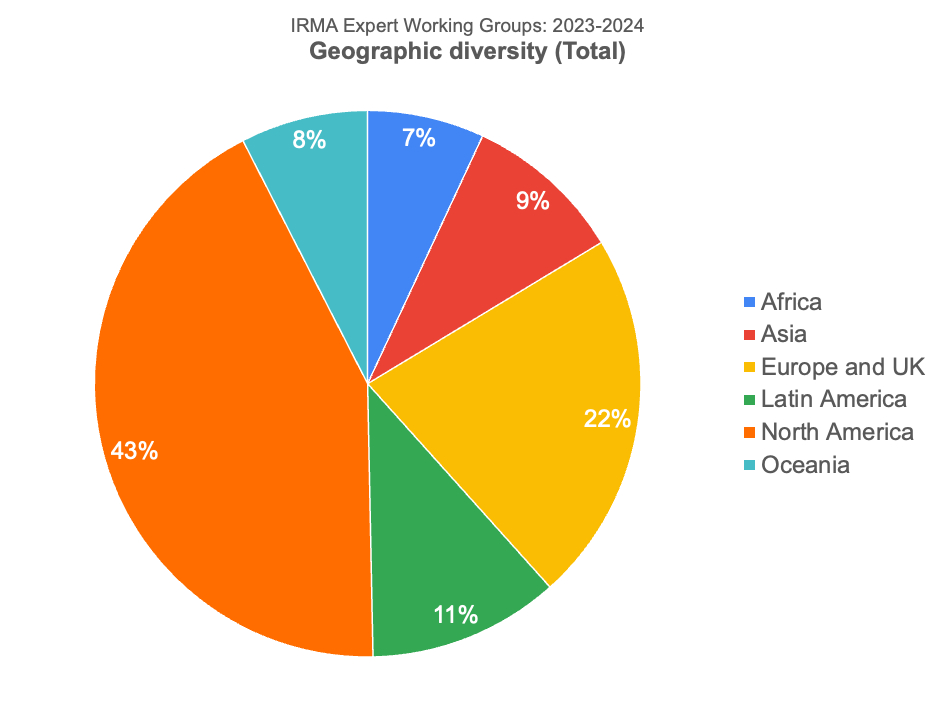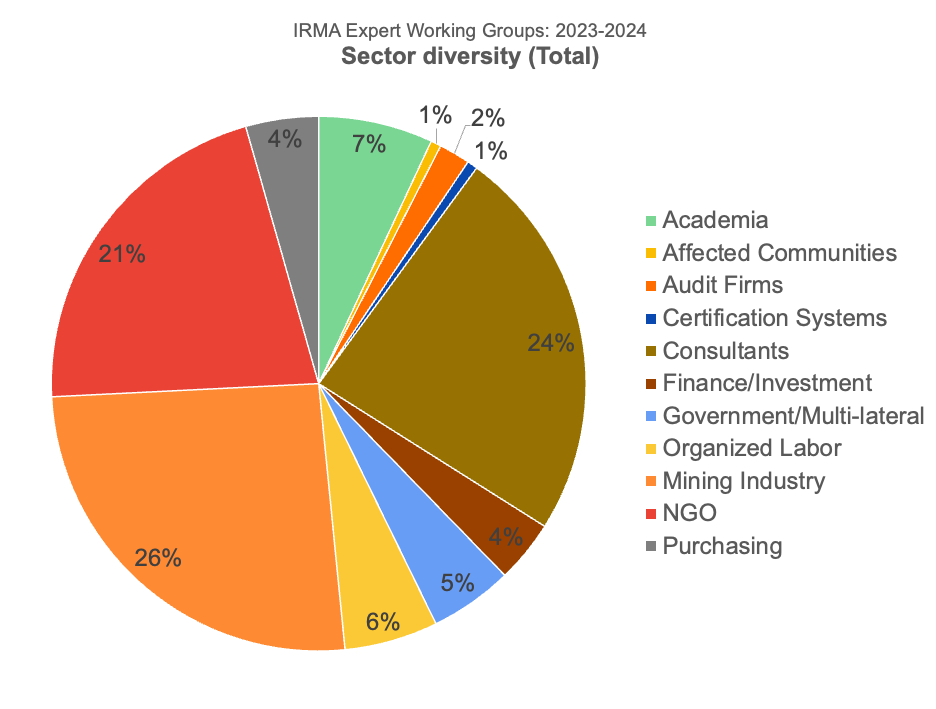Today, IRMA releases a 2nd DRAFT of the IRMA Standard v2.0 (for Responsible Exploration, Extraction, and Processing of Minerals) for a new round of worldwide public consultation – open until October 22, 2025.
This new draft builds on the 1st DRAFT version published in October 2023, and invites a global conversation to improve and update the 2018 IRMA Standard for Responsible Mining V1.0. This 2nd DRAFT is intended to provide as final of a look-and-feel as possible, although input from this consultation will result in final edits, and consolidation to reduce overall number of requirements, for a version that will be presented to IRMA’s unique equally-governed multi-stakeholder Board of Directors for adoption and implementation.
The 2nd DRAFT does not represent content that has yet been formally endorsed by the IRMA Board. IRMA’s Board leaders seek the wisdom and guidance of all readers to inform this through an inclusive revision process one more time, to improve the Standard.
This 2nd DRAFT has been prepared and updated by the IRMA Secretariat based on:
- learnings from the implementation of the current IRMA Standard (V1.0)
- experience from the first mines independently audited (as of July 2025, 24 sites have completed audits or are in the process of being audited)
- evolving expectations for best practices in mining to reduce harm
- comments and recommendations received from stakeholders and Indigenous rights-holders
- the input of subject-specific Expert Working Groups convened by IRMA between 2022 and 2024
- all comments and contributions received during the public-comment period of the 1st DRAFT version (October 2023-March 2024)
Please note: The IRMA Standard v2.0 is new in its approach (compared to v1.0, currently in use) in that it now covers more phases of the mining and mineral supply chain, from exploration and development, through mining, closure, and mineral processing. IRMA also, separately, oversees a Chain of Custody Standard for tracking materials through the supply chain from mine-to-market end use products.
Summary of the first public consultation
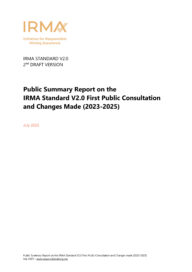
IRMA held a 90-day public consultation on the Draft IRMA Standard v2.0 which ran from October 26, 2023, to January 26, 2024. The consultation aimed to receive feedback from a wide range of members and partners of IRMA, and the diverse categories of rights-holders and stakeholders that IRMA serves and that would be affected by the changes to the IRMA Standard requirements. IRMA worked to ensure that all comments could be received in a wide range of languages and channels for communications, and we informed stakeholders that all comments would be considered carefully, objectively and equally. Comments could be sent using a diverse set of communication channels (emails, online platform, live webinars, letters, text messages via phones). Respondents could contribute in a confidential and/or anonymous manner.
During this first round, we received more than 2,500 points of comments from 82 organizations. Feedback came primarily from NGOs and the private sector with additional comments from Indigenous organizations, governments and multilaterals, organized labor and other standards systems. We were encouraged to see more than 10% of the organizations commenting were Indigenous organizations. In addition, more than 20% of the organizations were from the Global South.
A public summary report of this first public consultation and changes made is available here.
It provides the following:
- Context on the review of the IRMA Standard V1.0 to consider a revision.
- The components of IRMA’s preparation for releasing a 1st DRAFT v2.0 for consultation.
- A summary of the first public consultation that took place over 2023-2024.
- An overview of key changes captured in the first public consultation.
- A summary of the remaining and arising issues that are included in the second public consultation.
- Plans for the second consultation and how to engage.
- Links to online resources that are relevant to both the 1st and 2nd public consultations.
What is included in this 2nd DRAFT and how to engage?
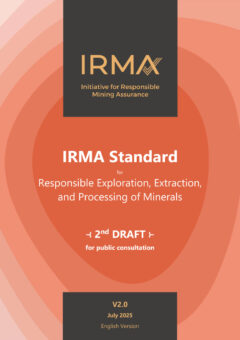 The IRMA Board, supported by the IRMA Secretariat, has approved the release of this 2nd DRAFT IRMA Standard v2.0 for a second 90-day consultation period, from July 22 to October 22, 2025.
The IRMA Board, supported by the IRMA Secretariat, has approved the release of this 2nd DRAFT IRMA Standard v2.0 for a second 90-day consultation period, from July 22 to October 22, 2025.
The second consultation will support rights-holders and stakeholders to engage and submit feedback by offering these resources, among others (see ‘Resources’ section below):
- The public summary report on the first consultation period (see above).
- A detailed log of all the comments that were submitted (confidential contributions have been redacted), and the individual responses from IRMA.
- The full 2nd DRAFT Mining Standard v2.0 (the new consolidated draft developed based on the first consultation period), in English, that includes:
- For each chapter: summary of the changes since the 2023 first draft; details on feedback received and decision made for every consultation question.
- Applicability to respective development stages (exploration to permitting to operations) integrated within the design of the chapters.
- Updated charts, tables, annexes and glossary.
- At-a-glance tables to easily compare the IRMA Standard V1.0 (2018) and this new consolidated 2nd DRAFT, highlighting substantial differences.
- Comparative mapping of the relevant sections of the 2nd DRAFT against the OECD Guidance For Responsible Supply Chains, the UN Guiding Principles on Business and Human Rights, and the EU CSDDD Directive (ET) 2024/1760.
How to engage?
Our dedicated consultation page lists all the ways to comment, including:
-
-
- An online commenting form, allowing for anonymous and/or confidential submissions.
- Email (at comments@responsiblemining.net) and postal options; including confidential options;
- WhatsApp (+1 301 202 1445) for text or voice comments; including confidential and encrypted options.
- Webinars and live consultations, to be announced in the coming weeks.
IRMA Expert Advisors and Expert Working Group
Building on the positive experience of Expert Working Groups, IRMA welcomes the contribution of individual experts as follows:
Expert Advisors
Pools of Expert Advisors will be created for the year 2025, seeking their individual perspective and suggestions on the following topics:
— Conflict-Affected and High-Risk Area Due Diligence
— Upstream and Downstream Sustainability Due Diligence
— Indigenous Peoples and Free, Prior, and Informed Consent (FPIC)
— Climate Action
— Applicability of the Standard to Mineral Exploration and Development
— Applicability of the Standard to Mineral Processing Projects and Operations
The Terms of Reference applicable to these Expert Advisors, including instructions on how to apply, are available at (click on this link): ToR for Expert Advisors 2025.
If you are interested in participating in joining the 2025 pools of IRMA Expert Advisors on one or more of these topics, please contact IRMA’s Standards Director, as explained in the Terms of Reference
Expert Working Group
Additionally, and acknowledging that several issues and challenges related to the management of tailings storage and mine waste facilities could not be resolved during the development of this 2nd DRAFT, IRMA proposes to discuss and explore potential approaches within an IRMA Expert Working Group dedicated to Tailings Storage and Mine Waste Facility Management.
The Terms of Reference applicable to this Expert Working Group, including instructions on how to apply, are available at (click on this link): ToR for Expert Working Group 2025.
If you are interested in participating in the IRMA Expert Working Group on Tailings and Mine Waste Storage Management, please contact IRMA’s Standards Director, as explained in the Terms of Reference.
Resources
➭ 2nd DRAFT for public consultation
To access the 2nd DRAFT of the IRMA Standard v2.0, open for public consultation until October 17, 2025, click here for a pdf version, and here for a tabular version (Excel).
Individual chapters are available here too.
➭ Public summary report of the first public consultation
To access the public summary report, click here for a pdf version.
➭ Summary of changes made in the 2nd DRAFT
To view the summary of the changes by Chapter that were completed during the first public consultation and resulted in the new 2nd DRAFT that is open for the second public consultation until October 17, 2025, click here for a pdf version.
➭ Comparative tables (2018-2025)
To access the comparative tables between the IRMA Standard v1.0 (2018) and this new 2nd DRAFT, highlighting all substantial differences, click here for a pdf version (excel versions are available here)
➭ All comments received during the 1st public consultation and IRMA responses
To view the full comments log for the first public consultation of the DRAFT IRMA Standard v2.0, click here for a pdf version, and here for a csv version (machine-readable).
➭ Summary of feedback received on consultation questions and decisions made
To view a summary of the feedback received for each consultation together with decisions made by IRMA, click here for a pdf version.
➭ Mapping of the 2nd DRAFT against the OECD Guidance
To view a mapping of the relevant section of the 2nd DRAFT against the OECD Guidance For Responsible Supply Chains, click here for an excel version.
➭ Mapping of the 2nd DRAFT against the UN Guiding Principles on Business and Human Rights
To view a mapping of the relevant section of the 2nd DRAFT against the OECD Guidance For Responsible Supply Chains, click here for an excel version.
➭ Mapping of the 2nd DRAFT against the EU CSDDD DIRECTIVE (EU) 2024/1760
To view a mapping of the relevant section of the 2nd DRAFT against the EU CSDDD DIRECTIVE (EU) 2024/1760, click here for an excel version.
Additional resources
- Individual Chapters can be downloaded from our Resources page: click here
- Key External References Used in IRMA Standards (July 2025 update): click here
- Log of the main documents and publications considered for the IRMA Standard review and revision (until 2023): Log of main documents and publications
- IRMA Standard for Responsible Mining v1.0 (2018) – EN | ES | FR | PT | ZH
- IRMA Standard (for Responsible Mining and Mineral Processing) v2.0 – 1st DRAFT for public consultation – used for the first public consultation held October 2023 to January 2024) – EN | ES
Note: If you wish to discuss your previously submitted comments you can write to IRMA’s Standards Director Pierre Petit-De Pasquale: pdepasquale@responsiblemining.net
